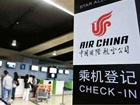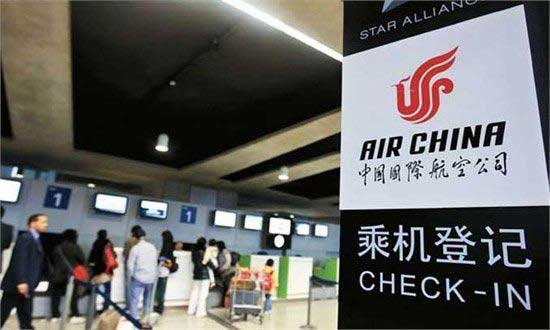| Videos | ? Latest |
|
? Feature | ? Sports | ? Your Videos |
Chinese airlines oppose aviation carbon tax

 0 Comment(s)
0 Comment(s) Print
Print E-mail
CNTV, December 22, 2011
E-mail
CNTV, December 22, 2011
The EU's emissions trading scheme has also attracted criticism from China. Chinese delegates complained about the issue at the recent UN climate conference in Durban. Liu Xinqing takes a look at how the Chinese airline industry will be affected.
 |
|
The EU committee has ruled that the EU will levy a carbon emissions trading tax on all airlines which arrive at or depart from Europe beginning January 1, 2012. |
Christmas and New Year usually bring cheer to the airline industry. But now is no time for celebration. All carriers flying to and from Europe are forced to buy carbon credit starting on January 1st. But experts have raised questions over the legality of this policy.
Nie Ying, legal advisor of China National Aviation Holding Company said: "The EU have the right to enforce its own laws within the European Union, but if it forces non-European countries to abide by the law, it runs the risk of breaching sovereignty of other countries."
And sovereignty is just part of this dispute. A free market is also at risk.
Zhu Qingyu, director of Market Research Department of CATA said: "According to their rules, now European airlines count carbon from the point of departure. That's unfair. The EU sets carbon emission quotas through force of law. This means we have no choice but to buy what they are selling. It's against free market principles."
Violating free market principles comes with a price. According to CATA, 33 Chinese airlines will be affected, by an estimated 800 million yuan for the first year, and a cumulative total of 17.6 billion yuan by 2020. Domestic airlines are already operating on thin profit margins. But the question is, how effective is this tax in reducing carbon emissions?
Chai Haibo, deputy secretary general of CATA said: "We support every measure that leads to a direct reduction in carbon emission, but we strongly oppose the practice of the EU to include international airlines into the ETS for mandatory carbon trading. "
Many say direct reduction of emissions should start from improving airplane engine efficiency. The EU tries to avoid this because any rules against engines are bound to hurt the Europe-based airplane manufacturer, Airbus. Transport associations, including the International Air Transport Association (IATA), have banded together to oppose this policy. In late October, the US House of Representatives has passed a bill banning US airlines from joining the EU's ETS.
That could serve as a legal support for US airlines to fight the policy, and more governments are expected to follow.
Reproter: The aviation industry has been one of the worst hit by the global financial crisis. The carbon tax is bound to put more pressure on its balance sheets. But what's more worrying is this tax can not effectively reduce carbon emissions. Rather than clearing the air, it's made the skies very unfriendly for countries outside Europe. "





